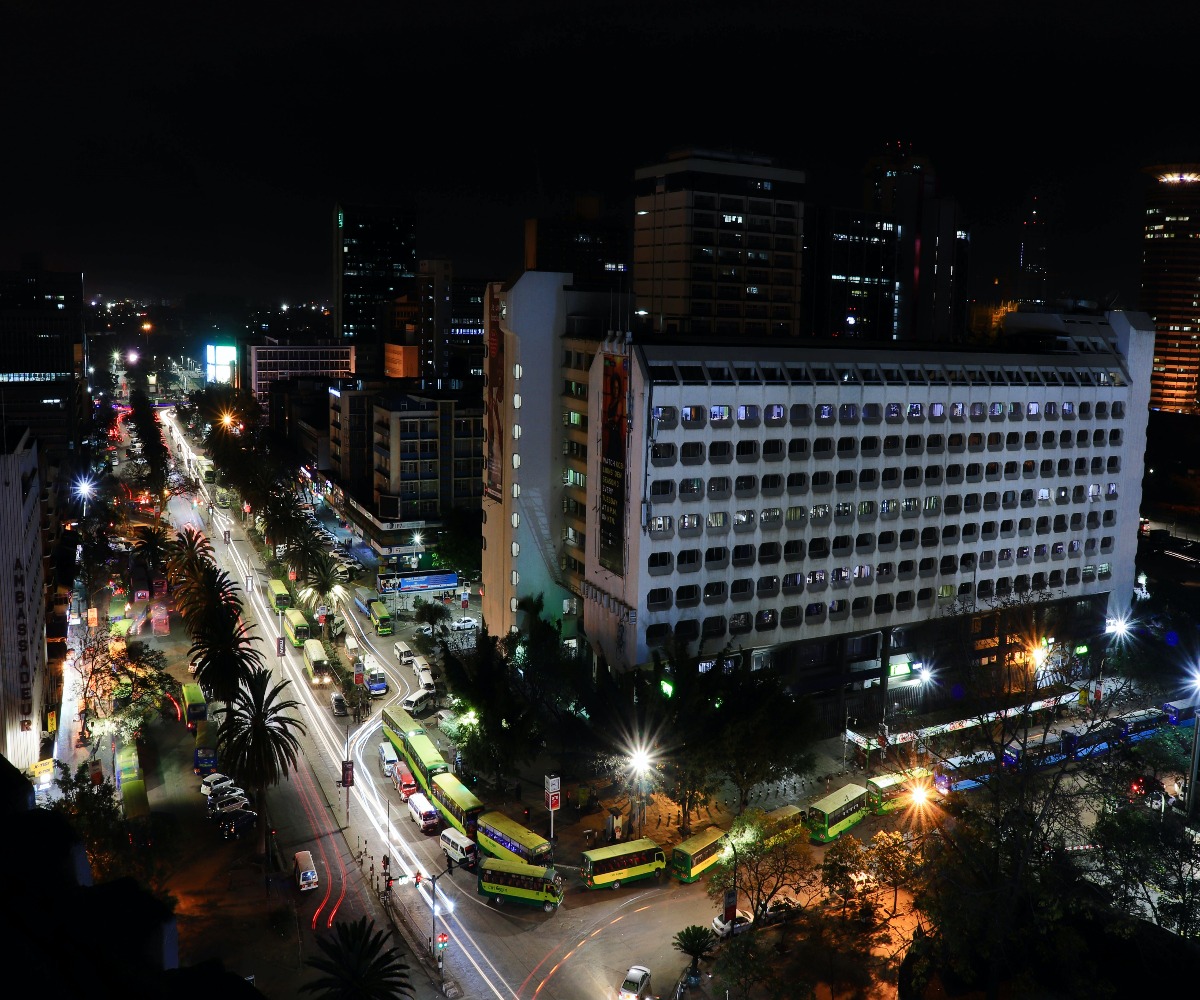Remote work or telecommuting is becoming more mainstream due to the COVID-19 pandemic. Industries across the board are realising what most freelancers already knew, that not everyone has to come into the office every day in order to get the job done! Of course, the pandemic has forced industries that were not prepared to either have fewer staff members in the office or have everyone work from home. However, once systems were put in place people soon found themselves adjusting and being able to work remotely. Below is a list of some of the best cities for working remotely in Africa. Even in the best of places there are challenges, for instance with internet access and electricity supply, but the possibilities for remote working on the continent have improved dramatically over the last few years.
Nairobi, Kenya
When you think remote work and technology you think Kenya and its capital because it is home to many digital nomads. Kenya’s tech industry is booming and the country has a number of tech and innovation hubs including, iHub which provides co-working spaces, networking opportunities and broadband internet. Some of the top remote jobs are tutoring, transcribing, video editing and providing translation services.
With so many options for payment gateways (BitPay, Pesapal, 2Checkout, etc) and Kenya being a leader in mobile money technology concerns about getting paid on time are significantly reduced. Mobile money services like M-Pesa that work both on smartphones and the most basic of phones allow more and more people to have access to payments.

Accra, Ghana
In Accra, Ghana the Minister of Communication, Ursula Owusu-Ekuful declared that 300,000 public sector workers in Ghana would work from home during the pandemic. This initiative called the Smart Workplace Project is an effort to keep the government fully operational and prevent the mass job losses that experts had predicted due to the COVID-19 pandemic.
Before the pandemic remote work was practiced by many in the tech industry or companies that couldn’t afford office spaces or whose services didn’t depend on physical interaction. One of the major benefits of remote work in Accra is that it cuts the daily commute; the average Ghanaian is said to spend anywhere from four to six hours commuting to and from work. This time spent commuting has a substantial impact on productivity as employees arrive at work tired, irritable and unable to focus. It also has a knock-on effect because they get home late and still have to decompress, have dinner before waking up to do the long journey to work all over again the next day.

Lagos, Nigeria
Lagos-based small and medium-sized enterprises have in the last five years started to embrace remote work. Many startups are seeing the benefits of keeping costs low by allowing remote work instead of paying rent on an office space. There is the added benefit of cutting out commute times. On average, Lagos residents commute for about two to three hours daily.
For those who still need a working space due to limited internet connectivity, electricity and difficult living conditions there are options. BuffrSpace is one of Africa’s largest platforms for on-demand workspaces for remote workers, operating in Nigeria (as well as Ghana and Kenya). BuffrSpace allows remote workers to book and pay for desk space in order to be able to get their work done successfully without being in your typical office.

Johannesburg, South Africa
When one thinks of remote work in South Africa, they may think of Cape Town a bustling city with so many creatives and freelancers, a city where remote work is pretty much the norm. But what about Johannesburg? I spoke to Efemia Chela who has been living and working remotely in South Africa for the past five years. Working as a project manager in the publishing industry she manages book production for clients across many different industries. Efemia shares, “I like being in my own space, creating my own schedule and working at my own pace. The added benefit is no transport costs! In fact, if remote work is the future then that means that people who would often move to an area to be close to work won’t have to. Instead they can choose to live closer to family or to live in bigger spaces as opposed to living in a small space in the city.”
Load shedding is expected to pick back up in the summertime, which will impact productivity levels. The situation is one to watch.
As for being paid on time, there are a few challenges when companies do not have cloud payroll services at home or access to them via a computer or stable internet services. Industries will have to investigate how to provide tools and systems for employees to be able to carry out work from home.
Lusaka, Zambia
You may be surprised to learn that Zambia is included in this list; by reputation we love having an office and we love having meetings. However, industries such as TV and film and journalism are two fields where people have been working remotely for years. Video editors, transcribers, translators, graphic designers, digital marketers and writers are the real experts on remote work in Zambia. That being said, the two biggest challenges in the last few years have been load shedding and internet connectivity. With regards to internet though, the situation is improving.
During the pandemic, the NGO sector is one that has quickly adapted to allowing remote work for its staff. Several organisations began sending staff home at the beginning of March and provided them with airtime to make work calls as well as portable modems loaded with data for connectivity. Many staffers were already familiar with Zoom and similar services as they regularly work with international partners.
One advantage in the last five years in Lusaka has been the increase of innovation hubs and co-working spaces like the The Zig, SandboxCo and BongoHivewhere smaller companies or individuals can rent a space to do their work.
Harare, Zimbabwe
Harare is home to a lot of young people who find themselves pushed into entrepreneurship and remote work simply because there are no jobs. A lot of people returning to Zimbabwe found themselves creating opportunities within the remote work space. Zanele Malumo shares, “When I came back a few years ago Zimbabwe had an unemployment rate of around 90 percent so immediately I saw that I would have to employ a particular strategy of work so I looked at what other young people were doing. I found that a lot of people were working remotely because there were no opportunities.”
In the Zimbabwean context, remote work is absolutely necessary as formal structures of work have been eroded and the economy has suffered greatly. Challenges faced by most remote workers in Zimbabwe are power supply and internet connectivity, there are often disruptions with internet and loss of electricity makes it difficult to meet deadlines.
In terms of payments, Zimbabwe is faced with the unique issue of black market rates which means clients when quoted will wait until the dollar rate is favourable to them. Though the black market has been banned it has existed for so long that it won’t be easy to eradicate. The banking system is fragile and accessing your money can prove to be difficult. There are several mobile money payment options like EcoCash that help mitigate these challenges.
Remote work allows for a greater degree of control in terms of time management, use of resources and how you earn a living. It opens up the global market for one to work across borders and internationally thus allowing many people to actually provide for themselves and their families.
The question is not whether or not remote work is happening across the continent but how it can become more mainstream with the help of better infrastructure and systems being put in place. The benefits are environmental (reduced carbon emissions as fewer people commute) and societal (women and men with children can benefit from working from the greater flexibility), among others. However, two of the biggest issues with remote work is access to a reliable internet and electricity supply. In order to work successfully from home, the structural systems that currently exist in offices have to be examined and re-defined. One can only hope that after the pandemic ends, companies that have seen the benefits of remote work will leave the option on the table for their employees.















